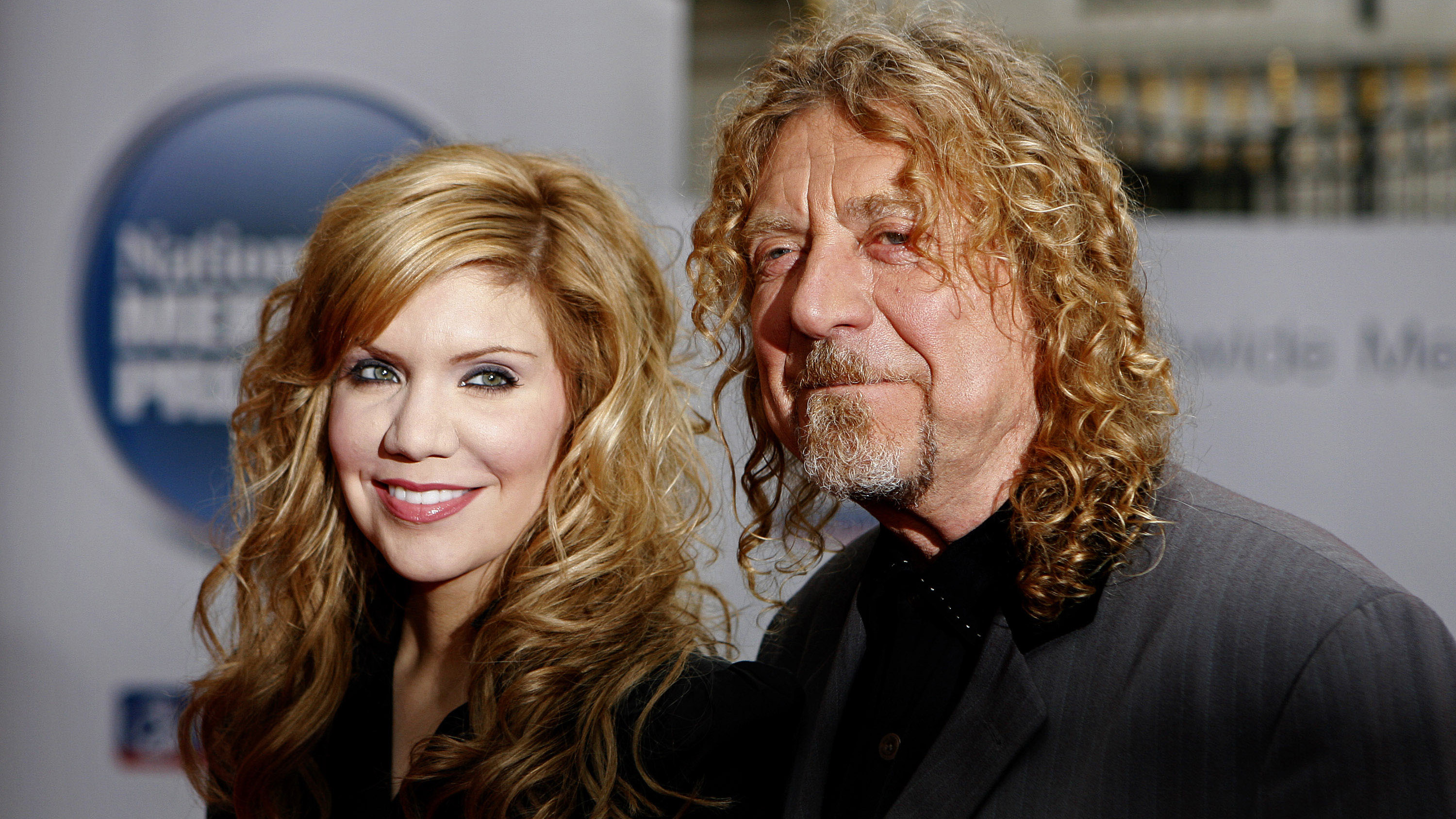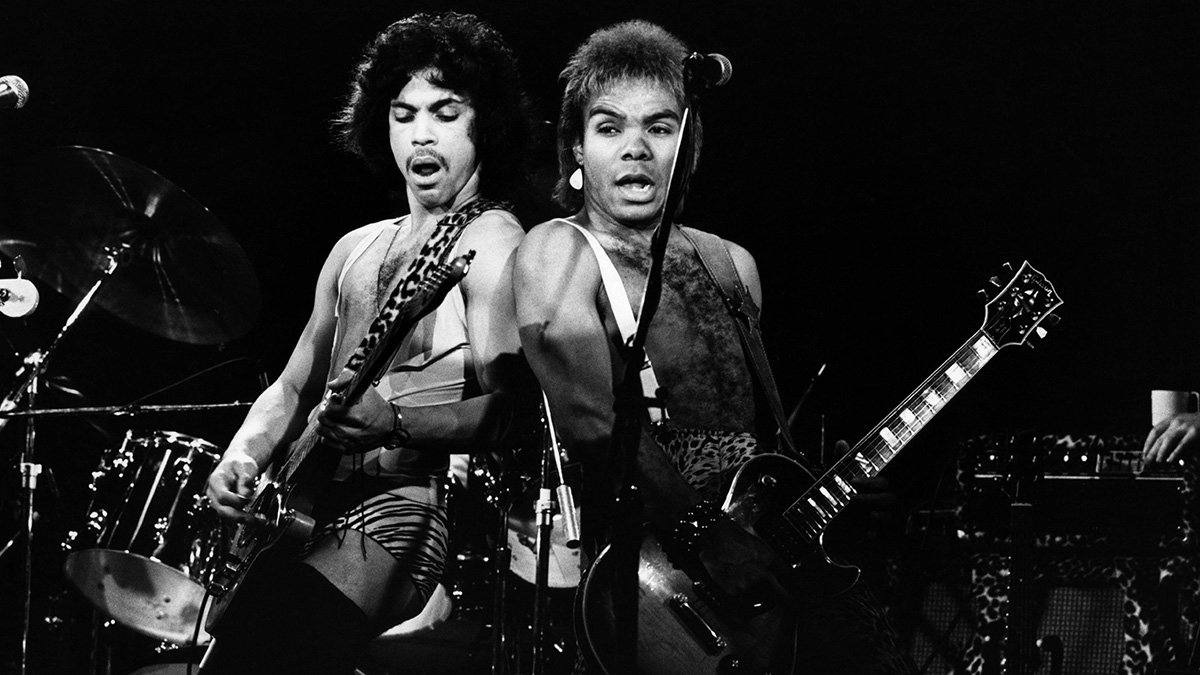"That whole guitar hero thing – it's just a load of crap, really": An interview with Echo and The Bunnymen’s Will Sergeant
From the archive: Bunnymen guitarist Will Sergeant on economy, influences and why you should avoid “twiddling away like those knobheads you see in a guitar shop”
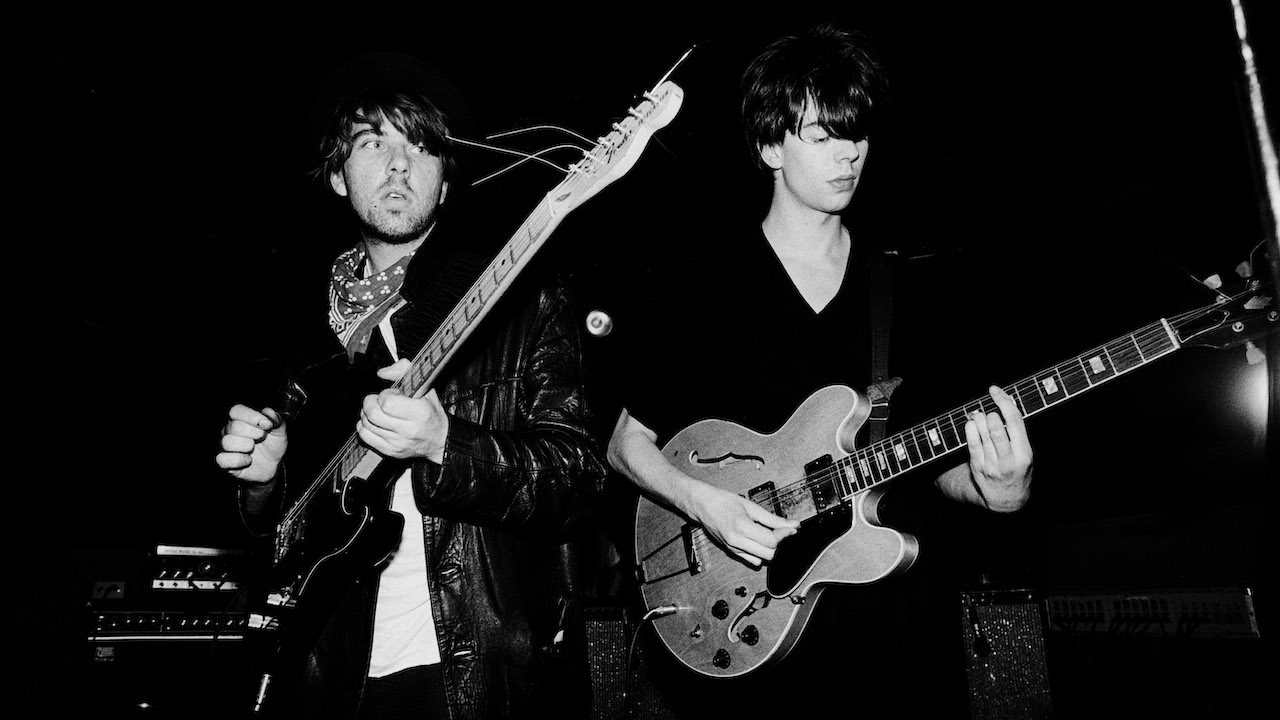
Echo and The Bunnymen: when they first got together they couldn’t really play. Their first gig was also the first time the band heard their singer actually sing. Somehow, they became brilliant. They had hits, things got mad, they split up. People died. And along the way they laid the path for The Verve, Coldplay and even Oasis.
The Bunnymen were too melodic and romantic to ever be ‘goth’. They were what you got when you took a love of all those goth influences – Alice Cooper, Bowie, the Velvets, the Doors – and bolted them to big tunes and grandiose ambition. In Ian “Mac” McCulloch, they had a singer with a big voice, big hair and an even bigger mouth.
Les Pattinson and Pete de Freitas were an explosive rhythm section and guitarist Will Sergeant could carve miracles out of the air. Acoustic flourishes, frenzied strumming, twanging riffs, chiming hooks, psychedelic craziness – Will Sergeant's guitar had the critics reaching for the thesaurus in an attempt to find another word for 'majestic'.
They didn't make many compromises in the 80s, and they briefly fell out of fashion. “We were stubborn,” says Les Pattinson, “and it’s reflected in bands like Oasis. Plus, Mac was always putting his foot in it, just like Liam. Basically, we just didn’t give a shit.”
This interview with Will Sergeant (and Les Pattinson) was originally published in Total Guitar magazine in 1997. The Bunnymen’s 80s success had ended with that same decade – with McCulloch pursuing a solo career and Pete De Freitas dead from a motorcycle accident, aged 27.
By 1997, they had reunited for a new album, Evergreen. Oasis might have had the Bunnymen’s working class swagger, but in Britpop’s wake a more thoughtful breed of bands had emerged and many of them – like The Verve, Radiohead and Coldplay – cited the Bunnymen as an influence. Evergreen was a top 10 album in the UK and the single Nothing Lasts Forever went to no.8 in the singles chart. They tour to this day, with their most recent album of original material, Meteorites, released in 2014.
"My very first guitar was a Hofner when I was 13. Paid 13 quid for it, too. Didn't know how to tune it or anything. Sold it for four quid. Never was a good business man."
Get the MusicRadar Newsletter
Want all the hottest music and gear news, reviews, deals, features and more, direct to your inbox? Sign up here.
Will Sergeant, Echo And The Bunnymen's guitarist, speaks in short, clipped sentences and tries to remember how he got from fiddling around in his bedroom to being one of the best – and often over-looked – guitarists of his generation.
"The next time was 1978, the whole punk thing – ‘buy a guitar and form a band’. I was 18. Everybody was walking around going, ‘Oh, we're starting a band’. It was just a thing that you did. I didn't think much beyond making weird tapes in me back room, y’know? So I got a chord book, learned some chords. I'd sort of twiddle around with one string."
Learning other people’s songs was not an option. "It's a waste of time,” he says. “I never understood wasting all that time trying to play The House of the Rising Sun.”
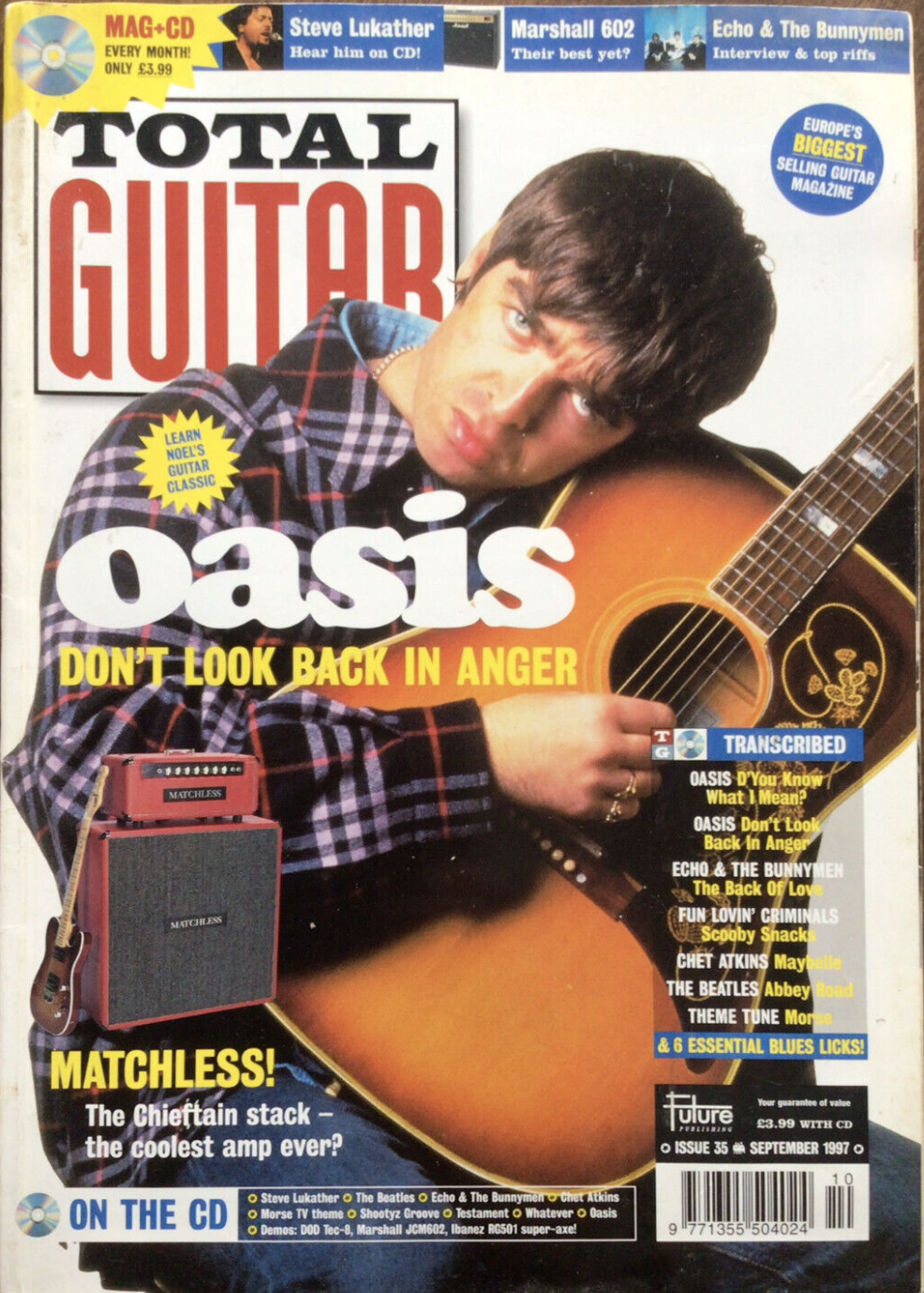
Echo and The Bunnymen were born out of Liverpool's post-punk scene and a basement club called Eric's. Eric’s was where you’d find Julian Cope and his fledgling Teardrop Explodes, Pete Wylie of Wah!, Bill Drummond (future Bunnymen manager, and the man behind the KLF), David Balfe (future Food records exec) – all the city's punks, weirdos and dreamers.
"Going to Eric's got me back into the guitar," says Will. "The Pistols, Television, Suicide, Iggy Pop, the Slits – they all played there. It was just a small shitty in-the-basement kinda vibe. It was actually below the new Cavern. When the original Cavern got knocked down, they moved it over there. It's all very weird, 'cos that street, Matthew Street, has always been a part of what's going on in Liverpool. And now it's just ‘orrible down there. All the dickheads got hold of it and made it all touristy."
Having been told by Pete Wylie that Ian McCulloch could sing, Will approached him and invited Mac round to his house for a jam. Soon they were offered a support slot at Teardrop Explodes first gig.
"Will and Mac were supposed to be playing at Teardrop Explodes' first show, and their balls were really going," remembers Les Pattinson. "I was winding them up about it so Will said, 'If you're so sure of yourself, why don't you go buy a bass and do it then?' So I bought a bass with three strings on it. Then we rehearsed and Mac didn't even turn up."
"None of us could play," says Will. "I never heard Mac sing until we did our first gig. Never."
Pattinson had never played any musical instrument before, they had a singer they'd never heard sing, and they only had one song: Monkeys. They played it over and over for 15 minutes.
"It's a weird attitude to have, I suppose," says Will. "But we didn't get nervous. It was that punk rock thing. It didn't matter if it was crap."
The DIY ethics of punk have remained Sergeant's inspiration to this day. "It just seems like a weird idea," he says, "the idea that if you play a load of notes it makes the song better. I remember, whatsisface, the drummer of The Police – Stewart Copeland – reviewed our song The Killing Moon on the radio and he said, ‘I think it's about time they stopped playing one-finger guitar solos.'
“I mean, if you're saying that, you just don't get it, do you? It's not how many fingers you use, it's about the atmosphere. That's a typical muso attitude from a typical muso band.
"It was only a few years ago that I realised the notes run in alphabetical order,” he says. “I just find the notes that sound right. I remember we were playing the Albert Hall and this bloke comes up and says [puts on posh accent], ‘Do you know that you're playing such-and-such a scale?’ Turned out I was playing some unusual shit…”
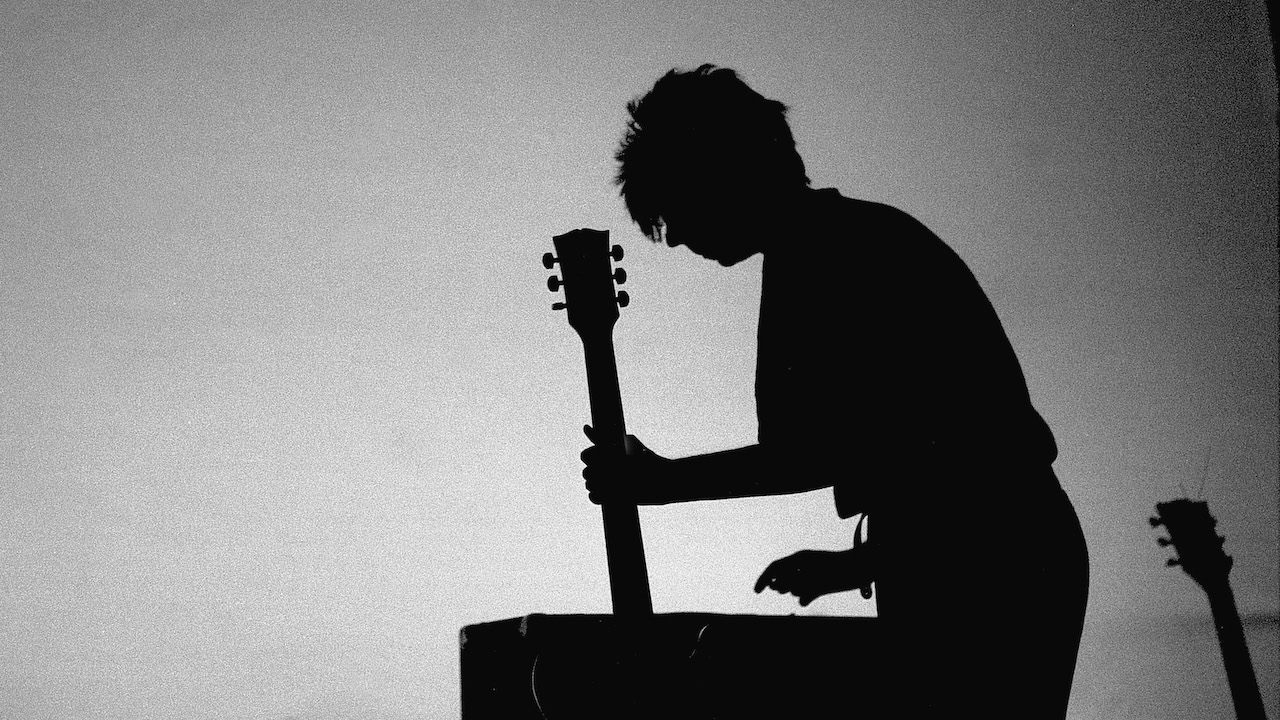
"I'm using a Fender Jaguar now. I've just had it for ages. Tom Verlaine used to use one. They're cool. I've got a Fender DeVille amp. Sounds amazing. I just liked the look of it, really, when I first got it. I bought one in America, but it's American voltage, so I've left it there. Had to get brand new speakers for it cos I blew it up.
"A Rotovibe, that's another thing I'm using. It gives you that Hendrix sound. I've got a Danelectro Fabtone, a 50s-style pedal. It looks great and mad sounds come out of it. Like super fuzz explosions, y'know? Like a million bees in the back of a soddin' petrol tanker set on fire!"
"The thing is," says Pattinson, "me and Will are lazy. If Will’s into something, he'll say 'I wanna play guitar like that', and he'll start playing it and it sounds nothing like what he's trying to get. He just loses it.
“But if he's got his bad head on – his attitude – he'll start coming up with stuff and it's fantastic. And then he'll move on from that, and try and get clever, and it's crap. Whereas before it was pure genius... It's like when I try, it's weird."
"That's dead true, that," agrees Will. "There's no need to make it complicated. Sometimes I need Mac and Les to point it out to me. 'Don't do so many twiddles’. That's a good bit of advice."
The Bunnymen’s back catalogue is packed with great examples of Will's unique guitar style – was it something he consciously created, or something he developed naturally? "My style's just a bit of everything,” he says. “Everybody's style is robbed from other people's, things that you like to sound like. You might play something and think, 'Hey that sounds like George Harrison, I like that’.
"I'd play something and think, 'That sounds just like the Velvets!' I was chuffed. But there's a difference between doing that and going out to play something like White Light/White Heat and just changing it a bit to make it sound like something else.”
There's an Eastern feel to a lot of Sergeant's playing – the intro to The Cutter, the guitar lines in The Killing Moon… "That came from 60s psychedelic records,” he says. “George Harrison of the Beatles. People like Bill Plummer and the Cosmic Brotherhood. Ever heard of them? They've got this brilliant track called Journey to The East. They're like these really straight-looking dudes from America."
The Bunnymen's songs are co-writes: a team effort. "The songs are written all different ways,” says Sergeant. “People have stuff, and we go down to Mac's basement or the rehearsal rooms, and somebody'll say, 'I've got this thing'. They'll play it, and it just keeps going round, letting everyone join in with ideas, and it just sort of grows.
“The best way to get rid of a song you don't like," he laughs, "is to say that it sounds like U2."
"I remember coming up with Thorn Of Crowns [from Ocean Rain],” says Les. “I did the bassline for it and Will hated it, but me and Pete had this connection, and we'd play it. One time Will joined in and started doing some of his scratchy guitar over it. And from that moment it became his favourite song. That's the best thing about Will – he's always saying things and then changing his mind later. On this album [Evergreen] he kept saying, 'You can only polish a turd so much'."
When McCulloch left the band at the tail-end of the '80s, it was Sergeant that decided to keep going. "It was very awkward. We were just going to knob it off, y’know. Then the record company bloke, Rob Dickens, said: 'Just get another singer'. I think he had a bit of a grudge against Mac and he just wanted to piss Mac off and was using us."
The band didn't gel, and Sergeant looked certain to join the legion of guitarists who live in the shadow of their frontmen. It's not unusual for well-known guitarists to find it hard playing in new bands – at the time of the interview, the Stones Roses’ John Squire had launched his post-Roses band The Seahorses. “John Squire's doing too much guitar over the singing,” says Will. “It's like, 'Alright, you can play guitar really well, now just shut up for a bit'.
"It's not just about being clever on the guitar, it's about knowing when to shut up, when to give space and all that," he says. "Or else it's just twiddling away like these knobheads you see in a guitar shop. I like the way he plays, but he just needs to shut up now and then. He's turning into Jeff Beck or somebody."
Will Sergeant, ex-punk and Bunnyman to the end, strokes his chin and shakes his head. "That whole guitar hero thing," he says. "It's just a load of crap, really."
This interview was first published in Total Guitar, September 1997. Will Sergeant's book about the early days of the Bunnymen, Bunnyman, was published in 2022. For more info and tour dates visit the official Echo & The Bunnymen site
Scott is the Content Director of Music at Future plc, which means he’s responsible for the editorial strategy on online and print brands like Louder, Classic Rock, Metal Hammer, Prog, Guitarist, Guitar World, Guitar Player, Total Guitar etc. He was Editor in Chief of Classic Rock for 10 years and Editor of Total Guitar for 4 years. Scott appears on Classic Rock’s podcast, The 20 Million Club, and was the writer/researcher on 2017’s Mick Ronson documentary Beside Bowie.
“They didn’t like his bikini underwear”: Prince’s support sets for the The Rolling Stones in 1981 are remembered as disastrous, but guitarist Dez Dickerson says that the the crowd reaction wasn’t as bad as people think
“We are so unencumbered and unbothered by these externally imposed rules or other people’s ideas for what music should be”: Blood Incantation on the making of Absolute Elsewhere and how “Data from Star Trek” saved the album – and the studio



